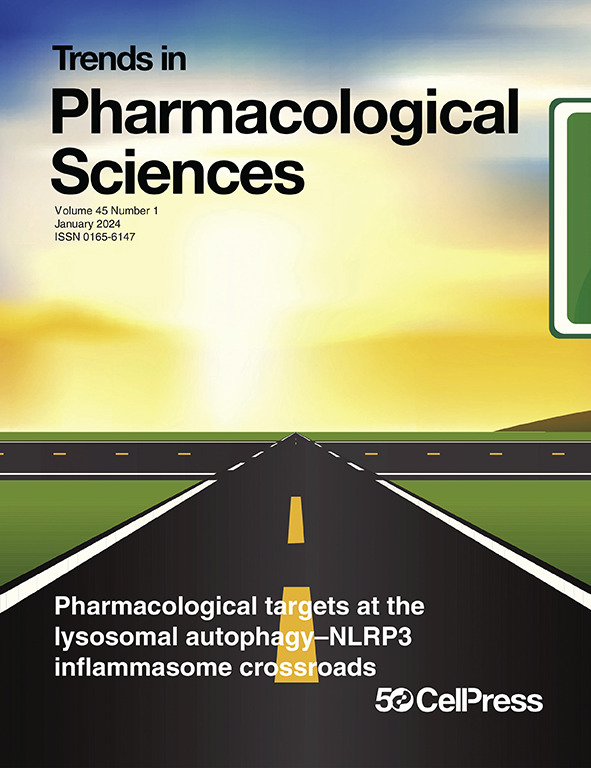Malolactone 罢工:K-Ras-G12D 的致命弱点
IF 13.9
1区 医学
Q1 PHARMACOLOGY & PHARMACY
引用次数: 0
摘要
在最近发表于《自然-化学生物学》(Nature Chemical Biology)的一项研究中,Zheng 等人利用丙二酸内酯类亲电体的应变释放作用,设计出一种首创的共价抑制剂,靶向胰腺癌中高度流行的 Kirsten 大鼠肉瘤病毒癌基因同源物(K-Ras)-G12D 变体中难以捉摸的天冬氨酸。在临床前 K-Ras-G12D 突变胰腺癌模型中,该化合物极大地抑制了致癌信号传导和肿瘤生长,扩大了 K-Ras-G12C 靶向疗法之外的治疗潜力。本文章由计算机程序翻译,如有差异,请以英文原文为准。
Malolactone strikes: K-Ras-G12D's Achilles' heel
In a recent study in Nature Chemical Biology, Zheng et al. exploiting strain release by malolactone-based electrophiles and designed a first-in-class covalent inhibitor that targets the elusive aspartate of the Kirsten rat sarcoma viral oncogene homolog (K-Ras)-G12D variant, which is highly prevalent in pancreatic cancer. The compound drastically inhibited oncogenic signaling and tumor growth in preclinical K-Ras-G12D-mutant pancreatic cancer models, expanding treatment potential beyond K-Ras-G12C-targeted therapies.
求助全文
通过发布文献求助,成功后即可免费获取论文全文。
去求助
来源期刊
CiteScore
23.90
自引率
0.70%
发文量
132
审稿时长
6-12 weeks
期刊介绍:
Trends in Pharmacological Sciences (TIPS) is a monthly peer-reviewed reviews journal that focuses on a wide range of topics in pharmacology, pharmacy, pharmaceutics, and toxicology. Launched in 1979, TIPS publishes concise articles discussing the latest advancements in pharmacology and therapeutics research.
The journal encourages submissions that align with its core themes while also being open to articles on the biopharma regulatory landscape, science policy and regulation, and bioethics.
Each issue of TIPS provides a platform for experts to share their insights and perspectives on the most exciting developments in the field. Through rigorous peer review, the journal ensures the quality and reliability of published articles.
Authors are invited to contribute articles that contribute to the understanding of pharmacology and its applications in various domains. Whether it's exploring innovative drug therapies or discussing the ethical considerations of pharmaceutical research, TIPS provides a valuable resource for researchers, practitioners, and policymakers in the pharmacological sciences.

 求助内容:
求助内容: 应助结果提醒方式:
应助结果提醒方式:


